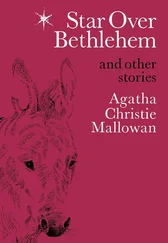Rudyard Kipling - Kipling Stories and Poems Every Child Should Know, Book II
Здесь есть возможность читать онлайн «Rudyard Kipling - Kipling Stories and Poems Every Child Should Know, Book II» — ознакомительный отрывок электронной книги совершенно бесплатно, а после прочтения отрывка купить полную версию. В некоторых случаях можно слушать аудио, скачать через торрент в формате fb2 и присутствует краткое содержание. Жанр: foreign_language, foreign_prose, на английском языке. Описание произведения, (предисловие) а так же отзывы посетителей доступны на портале библиотеки ЛибКат.
- Название:Kipling Stories and Poems Every Child Should Know, Book II
- Автор:
- Жанр:
- Год:неизвестен
- ISBN:нет данных
- Рейтинг книги:3 / 5. Голосов: 1
-
Избранное:Добавить в избранное
- Отзывы:
-
Ваша оценка:
- 60
- 1
- 2
- 3
- 4
- 5
Kipling Stories and Poems Every Child Should Know, Book II: краткое содержание, описание и аннотация
Предлагаем к чтению аннотацию, описание, краткое содержание или предисловие (зависит от того, что написал сам автор книги «Kipling Stories and Poems Every Child Should Know, Book II»). Если вы не нашли необходимую информацию о книге — напишите в комментариях, мы постараемся отыскать её.
Kipling Stories and Poems Every Child Should Know, Book II — читать онлайн ознакомительный отрывок
Ниже представлен текст книги, разбитый по страницам. Система сохранения места последней прочитанной страницы, позволяет с удобством читать онлайн бесплатно книгу «Kipling Stories and Poems Every Child Should Know, Book II», без необходимости каждый раз заново искать на чём Вы остановились. Поставьте закладку, и сможете в любой момент перейти на страницу, на которой закончили чтение.
Интервал:
Закладка:
Kipling Rudyard
Kipling Stories and Poems Every Child Should Know, Book II
A BIOGRAPHICAL SKETCH
The deep and widespread interest which the writings of Mr. Rudyard Kipling have excited has naturally led to curiosity concerning their author and to a desire to know the conditions of his life. Much has been written about him which has had little or no foundation in truth. It seems, then, worth while, in order to prevent false or mistaken reports from being accepted as trustworthy, and in order to provide for the public such information concerning Mr. Kipling as it has a right to possess, that a correct and authoritative statement of the chief events in his life should be given to it. This is the object of the following brief narrative.
Rudyard Kipling was born at Bombay on the 30th of December, 1865. His mother, Alice, daughter of the Rev. G. B. Macdonald, a Wesleyan preacher, eminent in that denomination, and his father, John Lockwood Kipling, the son also of a Wesleyan preacher, were both of Yorkshire birth. They had been married in London early in the year, and they named their first-born child after the pretty lake in Staffordshire on the borders of which their acquaintance had begun. Mr. Lockwood Kipling, after leaving school, had served his apprenticeship in one of the famous Staffordshire potteries at Burslem, had afterward worked in the studio of the sculptor, Mr. Birnie Philip, and from 1861 to 1865 had been engaged on the decorations of the South Kensington Museum. During our American war and in the years immediately following, the trade of Bombay was exceedingly flourishing, the city was immensely prosperous, a spirit of inflation possessed the Government and the people alike, there were great designs for the improvement and rebuilding of large portions of the town, and a need was felt for artistic oversight and direction of the works in hand and contemplated. The distinction which Mr. Lockwood Kipling had already won by his native ability and thorough training led to his being appointed in 1865 to go to Bombay as the professor of Architectural Sculpture in the British School of Art which had been established there.
It was thus that Rudyard Kipling came to be born in the most cosmopolitan city of the Eastern world, and it was there and in its neighbourhood that the first three years of the boy's life were spent, years in which every child receives ineffaceable impressions, shaping his conceptions of the world, and in which a child of peculiarly sensitive nature and active disposition, such as this boy possessed, lies open to myriad influences that quicken and give colour to the imagination.
In the spring of 1868 he was taken by his mother for a visit to England, and there, in the same year, his sister was born. In the next year his mother returned to India with both her children, and the boy's next two years were spent at and near Bombay.
He was a friendly and receptive child, eager, interested in all the various entertaining aspects of life in a city which, "gleaning all races from all lands," presents more diversified and picturesque varieties of human condition than any other, East or West. A little incident which his mother remembers is not without a pretty allegoric significance. It was at Nasik, on the Dekhan plain, not far from Bombay: the little fellow trudging over the ploughed field, with his hand in that of the native husbandman, called back to her in the Hindustani, which was as familiar to him as English, "Good-bye, this is my brother."
In 1871 Mr. and Mrs. Kipling went with their children to England, and being compelled to return to India the next year, they took up the sorrow common to Anglo-Indian lives, in leaving their children "at home," in charge of friends at Southsea, near Portsmouth. It was a hard and sad experience for the boy. The originality of his nature and the independence of his spirit had already become clearly manifest, and were likely to render him unintelligible and perplexing to whosoever might have charge of him unless they were gifted with unusual perceptions and quick sympathies. Happily his mother's sister, Mrs. (now Lady) Burne-Jones, was near at hand, in case of need, to care for him.
In the spring of 1877 Mrs. Kipling came to England to see her children, and was followed the next year by her husband. The children were removed from Southsea, and Rudyard, grown into a companionable, active-minded, interesting boy, now in his thirteenth year, had the delight of spending some weeks in Paris, with his father, attracted thither by the exhibition of that year. His eyesight had been for some time a source of trouble to him, and the relief was great from glasses, which were specially fitted to his eyes, and with which he has never since been able to dispense.
On the return of his parents to India, early in 1878, Rudyard was placed at the school of Westward Ho, at Bideford, in Devon. This school was one chiefly intended for the sons of members of the Indian services, most of whom were looking forward to following their fathers' careers as servants of the Crown. It was in charge of an admirable head-master, Mr. Cormell Price, whose character was such that he won the affection of his boys no less than their respect. The young Kipling was not an easy boy to manage. He chose his own way. His talents were such that he might have held a place near the highest in his studies, but he was content to let others surpass him in lessons, while he yielded to his genius in devoting himself to original composition and to much reading in books of his own choice. He became the editor of the school paper, he contributed to the columns of the local Bideford Journal , he wrote a quantity of verse, and was venturesome enough to send a copy of verses to a London journal, which, to his infinite satisfaction, was accepted and published. Some of his verses were afterward collected in a little volume, privately printed by his parents at Lahore, with the title "Schoolboy Lyrics." All through his time at school his letters to his parents in India were such as to make it clear to them that his future lay in the field of literature.
His literary gifts came to him by inheritance from both the father and mother, and they were nurtured and cultivated in the circle of relatives and family friends with whom his holidays were spent. A sub-master at Westward Ho, though little satisfied with the boy's progress in the studies of the school, gave to him the liberty of his own excellent library. The holidays were spent at the Grange, in South Kensington, the home of his aunt and uncle, Mr. and Mrs. Burne-Jones, and here he came under the happiest possible domestic influences, and was brought into contact with men of highest quality, whose lives were given to letters and the arts, especially with William Morris, the closest intimate of the household of the Grange. Other homes were open to him where the pervading influence was that of intellectual pursuits, and where he had access to libraries through which he was allowed to wander and to browse at his will. The good which came to him, directly and indirectly, from these opportunities can hardly be overstated. To know, to love, and to be loved by such a man as Burne-Jones was a supreme blessing in his life.
In the autumn of 1882, having finished his course at school, a position was secured for him on the Civil and Military Gazette , Lahore, and he returned to his parents in India, who had meanwhile removed from Bombay to Lahore, where his father was at the head of the most important school of the arts in India. The Civil and Military Gazette is the chief journal of northwestern India, owned and conducted by the managers and owners of the Allahabad Pioneer , the ablest and most influential of all Indian newspapers published in the interior of the country.
Читать дальшеИнтервал:
Закладка:
Похожие книги на «Kipling Stories and Poems Every Child Should Know, Book II»
Представляем Вашему вниманию похожие книги на «Kipling Stories and Poems Every Child Should Know, Book II» списком для выбора. Мы отобрали схожую по названию и смыслу литературу в надежде предоставить читателям больше вариантов отыскать новые, интересные, ещё непрочитанные произведения.
Обсуждение, отзывы о книге «Kipling Stories and Poems Every Child Should Know, Book II» и просто собственные мнения читателей. Оставьте ваши комментарии, напишите, что Вы думаете о произведении, его смысле или главных героях. Укажите что конкретно понравилось, а что нет, и почему Вы так считаете.












